Lack of QTIPOC spaces
QTIPOC spaces are sanctuaries, donate to our crowdfund to help preserve them.
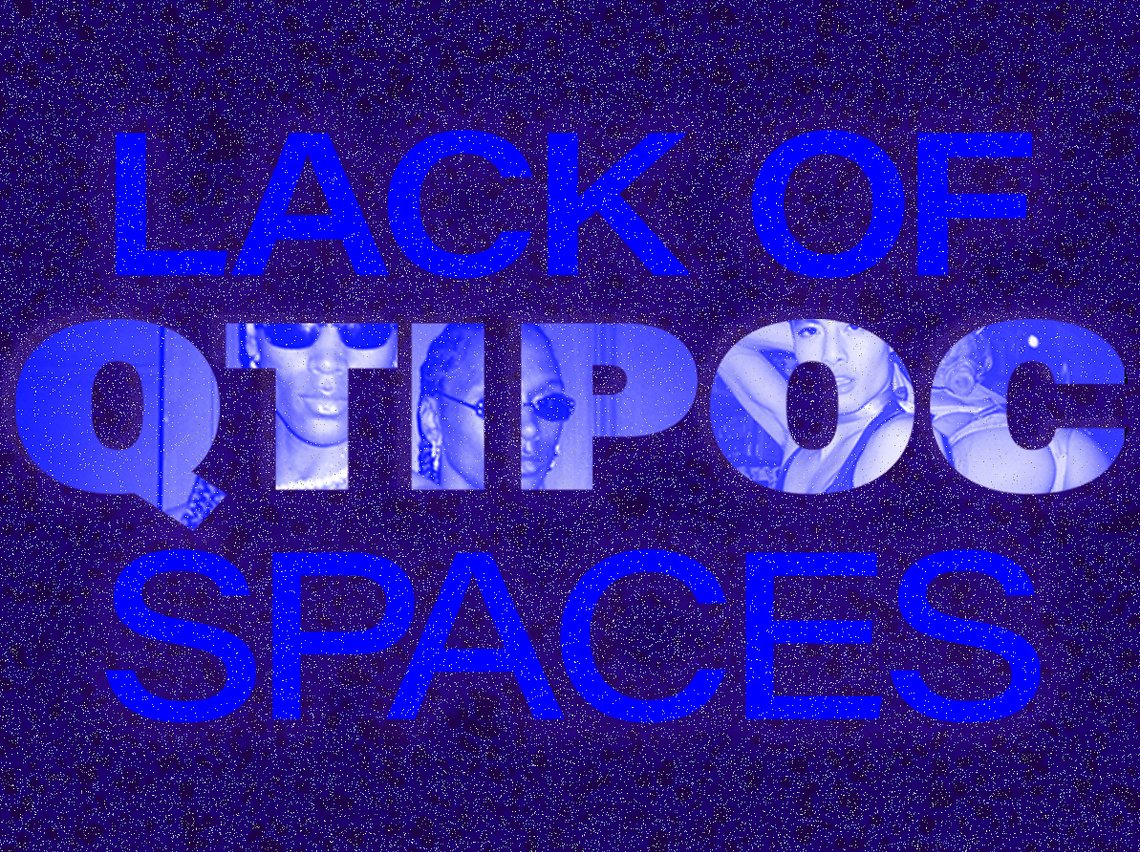
Posted on Tue 23 Feb 2021 · by Paal Sidhu
QTIPOC spaces are sanctuaries, donate to our crowdfund to help preserve them. We are creating jobs, amplifying marginalised artists and providing solutions to sustain LGBTQ+ venues through nightlife & tourism.
Due to the rapid disappearance of London’s queer nightlife since the early 2000s, our safe spaces have become more essential than ever for the safety and well-being of queer people. 2006-2017 saw a 58% fall in the number of queer nightlife spaces in the UK’s capital, showing how our spaces are under grave pressure from the forces of gentrification (Campkin & Marshall, 2018). In fact, while 2007-2019 saw a 37% drop in queer bars in the US, queer POC bars fell by 60% (NBC). Alongside the widespread destruction of queer spaces, QTIPOC are often excluded from political and socio-economic decision-making, rendering them more vulnerable to societal oppression with no spaces that cater to their safety. A few reading may appear confused at this information - G-A-Y, Heaven? They still exist? We have streets full of bars and clubs? Can’t QTIPOC just come to these bars?
While I understand those that may believe this, we must identify the societal structures existing which limit the access to these spaces for QTIPOC. We can argue for hours over social, cultural and racial issues in the queer community, but the need for QTIPOC safe spaces is not up for discussion. Studies exploring the experiences of queer students of colour expose a wide-spread exclusion of QTIPOC from campus-based LGBTQ+ spaces (Poynter & Washington, 2005) - and when the queer spaces accessible to these students outside of campus are white-majority spaces, you see how this issue starts to grow.
So, what do we mean by a QTIPOC safe space? Well, fundamentally - a space that prioritises the safety and well-being of QTIPOC, ensuring the freedom of expression and creating a space where discussions about shared identity and experiences can take place.
Here are some examples...
 In 1977, Jamaican artist and shop owner Pearl Alcock opened an underground bar underneath her café in Brixton, which quickly became a social hub for queer black men. The hidden bar provided anonymity from the busy streets, allowing queer black men to become more openly intimate without fear of social prosecution. The bar manifested a close-knit group of regulars who would drink, laugh and socialise.
In 1977, Jamaican artist and shop owner Pearl Alcock opened an underground bar underneath her café in Brixton, which quickly became a social hub for queer black men. The hidden bar provided anonymity from the busy streets, allowing queer black men to become more openly intimate without fear of social prosecution. The bar manifested a close-knit group of regulars who would drink, laugh and socialise.
Before moving to London, Alcock had worked in factories and as a maid until she saved up enough to open up her shop in London. Her hard work and perseverance created a space which positively influenced many queer black individuals at the time. During the 1970s, racist landlords still had the power to ensure their clientele is majority-white. Pearl Alcock provided a hub of safety and hope during a period of widespread discrimination and oppression.
In 1973, Indiana-born Jewel Thais-Williams opened a ‘gay black disco’ in Los Angeles. Faced with a lot of racial discrimination - (bar staff quitting because they didn’t want to work for a black woman) and rising local tensions, Thais-Williams created a safe space for queer people of colour when many bars in the area would refuse service to QTIPOC. Queer POC congregated in the bar at night, without fear of being harassed by bar staff or prices driven up by racist owners. The club’s legacy lives on as the longest-running gay black dance bar in LA, with notable performers such as Patti Labelle, RuPaul and Madonna. The disco became a core structure to the safety and well-being of QTIPOC in the area.
Faced with a lot of racial discrimination - (bar staff quitting because they didn’t want to work for a black woman) and rising local tensions, Thais-Williams created a safe space for queer people of colour when many bars in the area would refuse service to QTIPOC. Queer POC congregated in the bar at night, without fear of being harassed by bar staff or prices driven up by racist owners. The club’s legacy lives on as the longest-running gay black dance bar in LA, with notable performers such as Patti Labelle, RuPaul and Madonna. The disco became a core structure to the safety and well-being of QTIPOC in the area.
Alibi Lounge
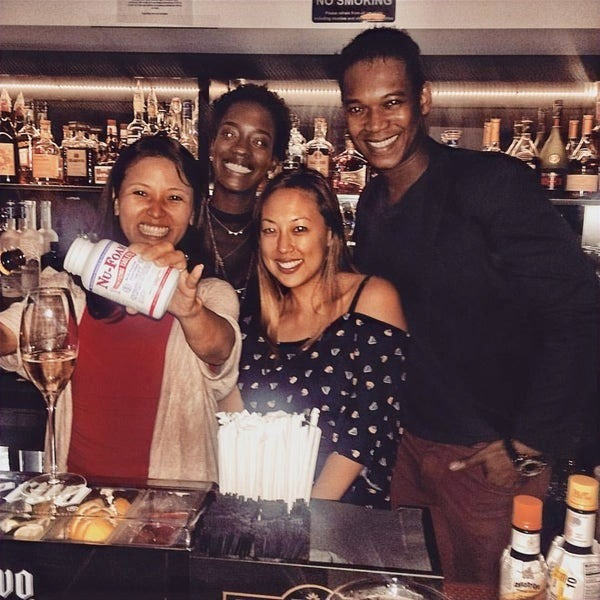 Alibi is the first openly gay and black-owned establishment in Harlem, New York. Owned by Alexi Minko, Alibi was created as a safe space for all QTIPOC individuals, becoming a culture hub for Harlem’s queer black scene.
Alibi is the first openly gay and black-owned establishment in Harlem, New York. Owned by Alexi Minko, Alibi was created as a safe space for all QTIPOC individuals, becoming a culture hub for Harlem’s queer black scene.
Alibi has always been a community-committed establishment, partnering with the Rustin Fund for Global Equality, supporting LGBTQI+ individuals to reach their full potential in society. As a black-owned business, Alibi emphasises that BLM includes Black transgender lives, Black LGBT lives and Black businesses.
After having many hurdles thrown at the venue, Alibi remains a pillar of our community - one which needs our aid!
To support the last gay and Black-owned business in Harlem, click here.
Everyone needs an Alibi!
See more via Alibi Lounge Harlem.
Pxssy Palace
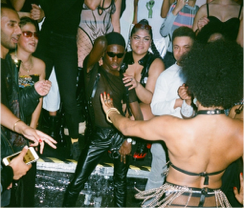 Prominent QTIPOC club night Pxssy Palace in London is setting the standards of what defines a QTIPOC safe space. Journalist Laura Kirwan-Ashman (2020) described Pxssy Palace as a place of ‘joy, love, self-expression and support’. As well as gender-neutral bathrooms, Pxssy Palace has a sliding scale of ticket prices depending on your identity and privilege - prioritising queer and non-binary women of colour.
Prominent QTIPOC club night Pxssy Palace in London is setting the standards of what defines a QTIPOC safe space. Journalist Laura Kirwan-Ashman (2020) described Pxssy Palace as a place of ‘joy, love, self-expression and support’. As well as gender-neutral bathrooms, Pxssy Palace has a sliding scale of ticket prices depending on your identity and privilege - prioritising queer and non-binary women of colour.
There are no written rules, you pay as you identify no questions asked - (That is how you prioritise QTIPOC and protect the value of a safe space). They also run buddy systems and taxi funds to help those either coming alone, or those unable to afford a safe way home. This is a common issue with queer spaces - those queer individuals who are isolated from the community find it very hard to initially enter our spaces. These systems in place help those who may not be ‘out’, aiding their access into these safe spaces - and their travel home.
See more via Pxssy Palace.
Photo by: Bernice Mulenga
The Bitten Peach
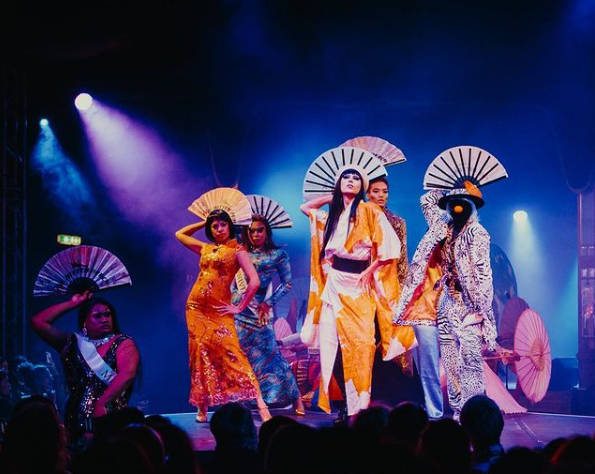
Described as a ‘Pan-Asian Cabaret Collective’, The Bitten Peach is an organisation amplifying the voices, talents and beauty of the Queer-Asian community in the UK. Their policies and agenda identify threats to the safety of QTIPOC, including racist and ignorant behaviour which will not be tolerated in Bitten Peach events. They openly reinforce concepts of consent, personal space and respect in order to create a safe space for queer Asian individuals.
All their performance include an amalgamation of queer arts, drag, Asian fashion, dance and music - focusing on uplifting and securing the queer-Asian community. Since the dawn of Covid-19, The Bitten Peach have been hosting virtual Bollywood dance classes, workout groups and cooking tutorials to engage with members of the QTIPOC and allies.
See more via Bitten Peach UK.
Photo: @capturedbycorinne
The Cocoa Butter Club
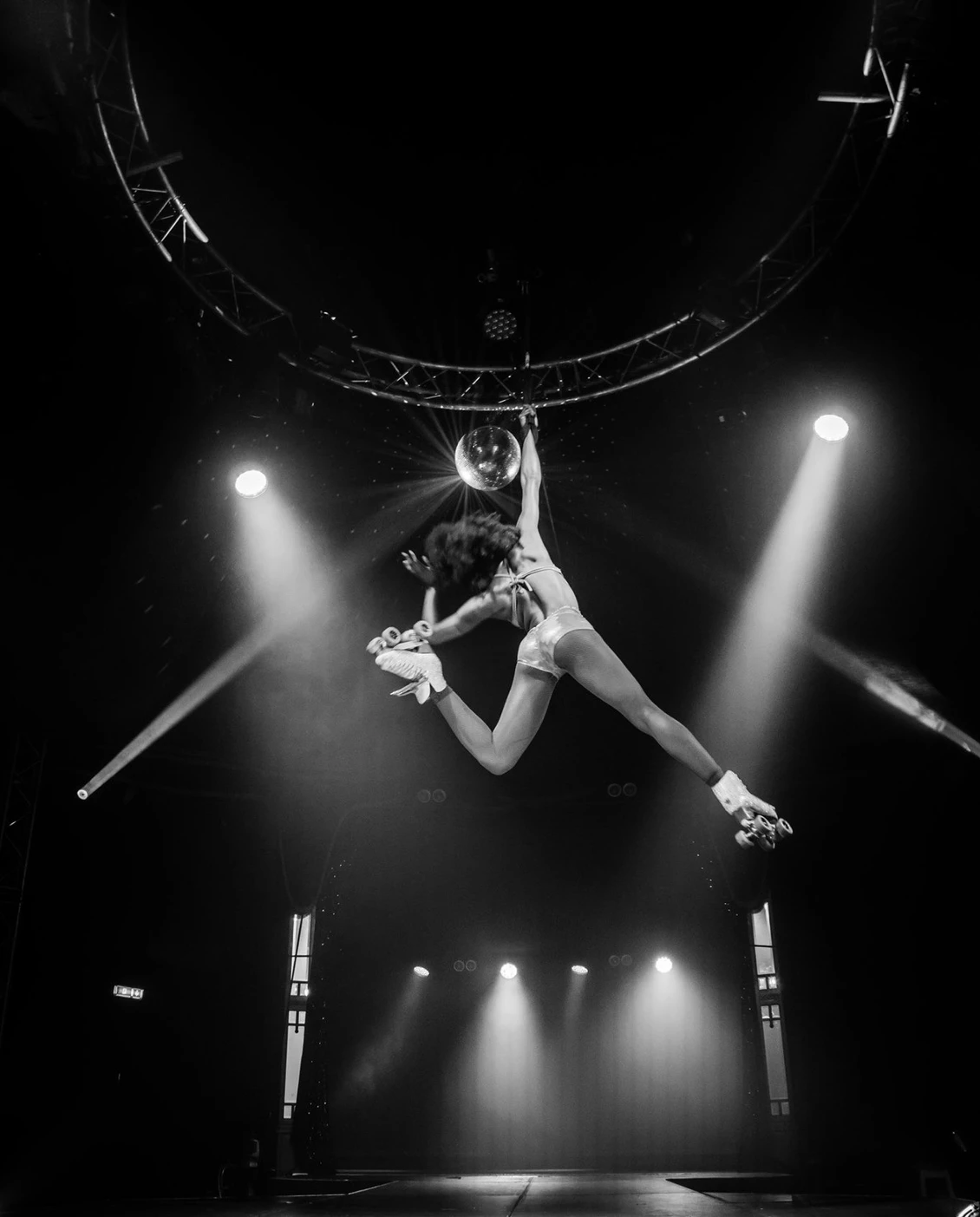 With the provocative slogan ‘DECOLONISE & MOISTURISE’, The Cocoa Butte Club is an award-winning black and LGBTQIA+ owned production company providing a stage to incredibly talented performers of colour. Established by Sadie Sinner out of a need to project queer and black cabaret talents in a largely white-dominated field of creativity.
With the provocative slogan ‘DECOLONISE & MOISTURISE’, The Cocoa Butte Club is an award-winning black and LGBTQIA+ owned production company providing a stage to incredibly talented performers of colour. Established by Sadie Sinner out of a need to project queer and black cabaret talents in a largely white-dominated field of creativity.
Now a prominent figure in London’s cabaret, the Cocoa Butter Club has worked with UK Black Pride and London Pride to ensure the venue remains a ‘sacred space’ for queer POC performers. Since Covid-19, The Cocoa Butter Club have been hosting discussions on queer Black issues exploring issues of colourism and texturism.
See more via The Cocoa Butter Club.
Photo @thecocoabutterclub
Nite Dykez
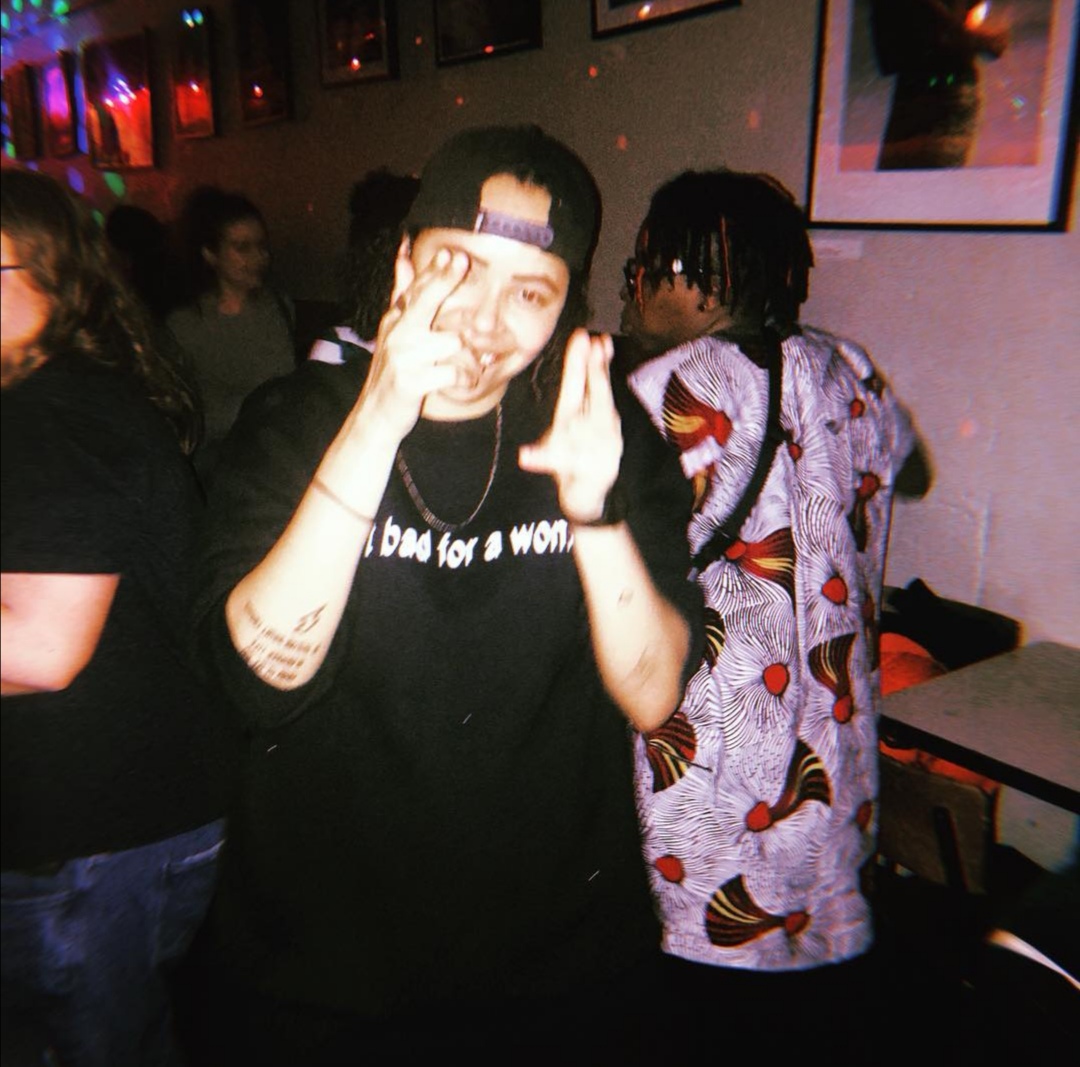
Hosted in East London’s queer hub ‘Dalston Superstore’, Nite Dykes is a queer club night prioritising the safety and experiences of women, transgender individuals and POC. They are bringing back the fun of clubbing with a focus on good vibes, good music and mutual respect. While often extremely dominated by male spaces, Nite Dykes are revolutionising queer nightlife, creating a safe space where queer-femme love can spark and grow.
Blossoming from the dissatisfaction of the lesbian scene in London, founders Gin and Mica created a queer club night that centralises the importance of good music equals good vibes. As well as creating a space which embraces ALL forms of queer women, Nite Dykez have created a platform for the raw musical talent of many WOC.
See more via Nite Dykez.
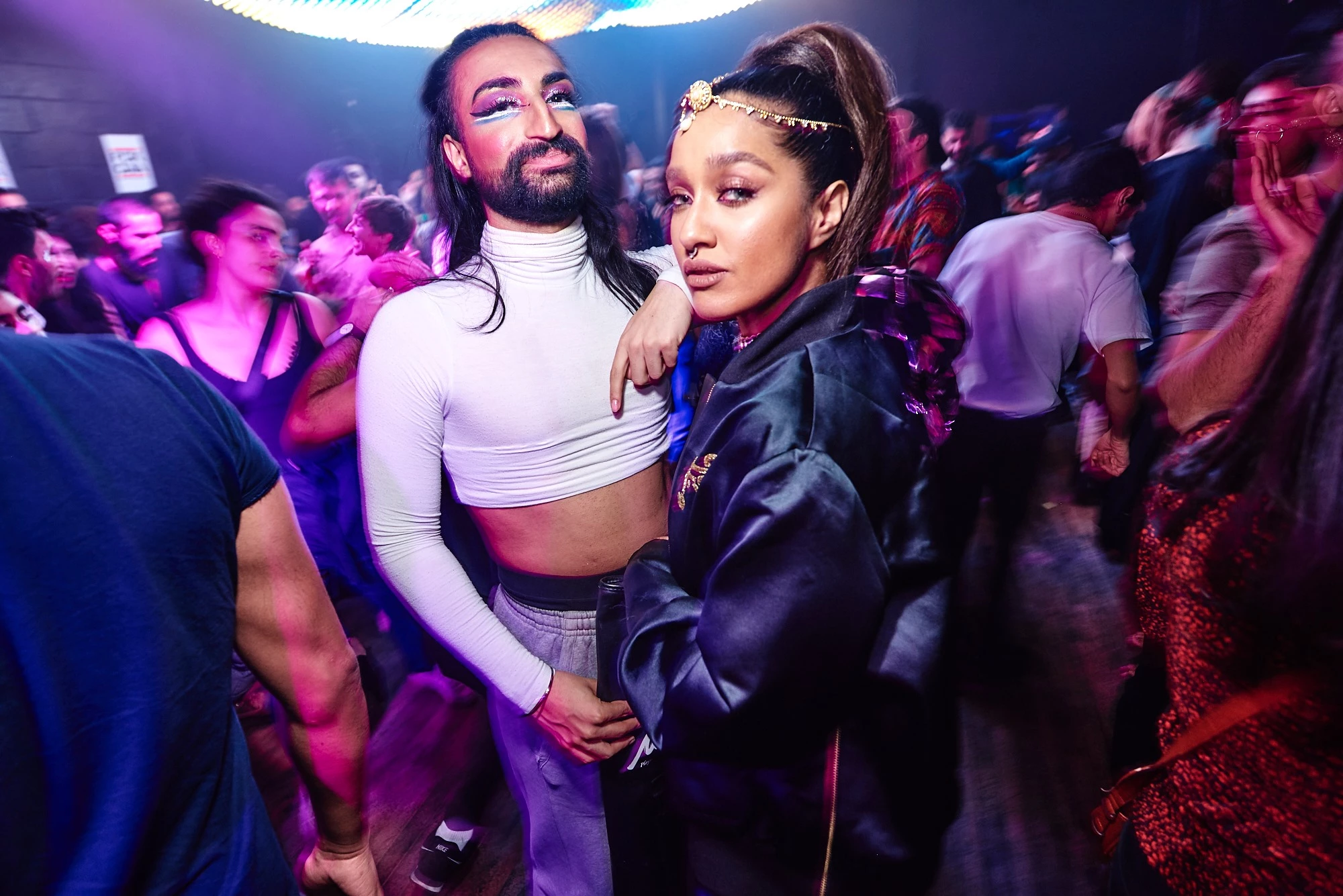 Do you like Bollywood? Do you like Hip-Hop? Hungama might be your club night. Acknowledging the lack of safe spaces available to the South Asian LGBTQ+ community, Hungama is not just a club night, but a place of solidarity, love and self-expression.
Do you like Bollywood? Do you like Hip-Hop? Hungama might be your club night. Acknowledging the lack of safe spaces available to the South Asian LGBTQ+ community, Hungama is not just a club night, but a place of solidarity, love and self-expression.
Providing a platform for many South-Asian queer performers, Hungama celebrates culture while rejecting exoticisation. They prioritise the primary function of their nights - a safe space where racism, sexism, and queerphobia are left at the door! Since the start of the global pandemic, Hungama are hosting ‘Friday Night HIIT’ - a workout class that focuses on feeling good and energising your body, securing a sense of stable community in an otherwise crazy world.
See more via Hungama.
Vogue Fabrics Dalston
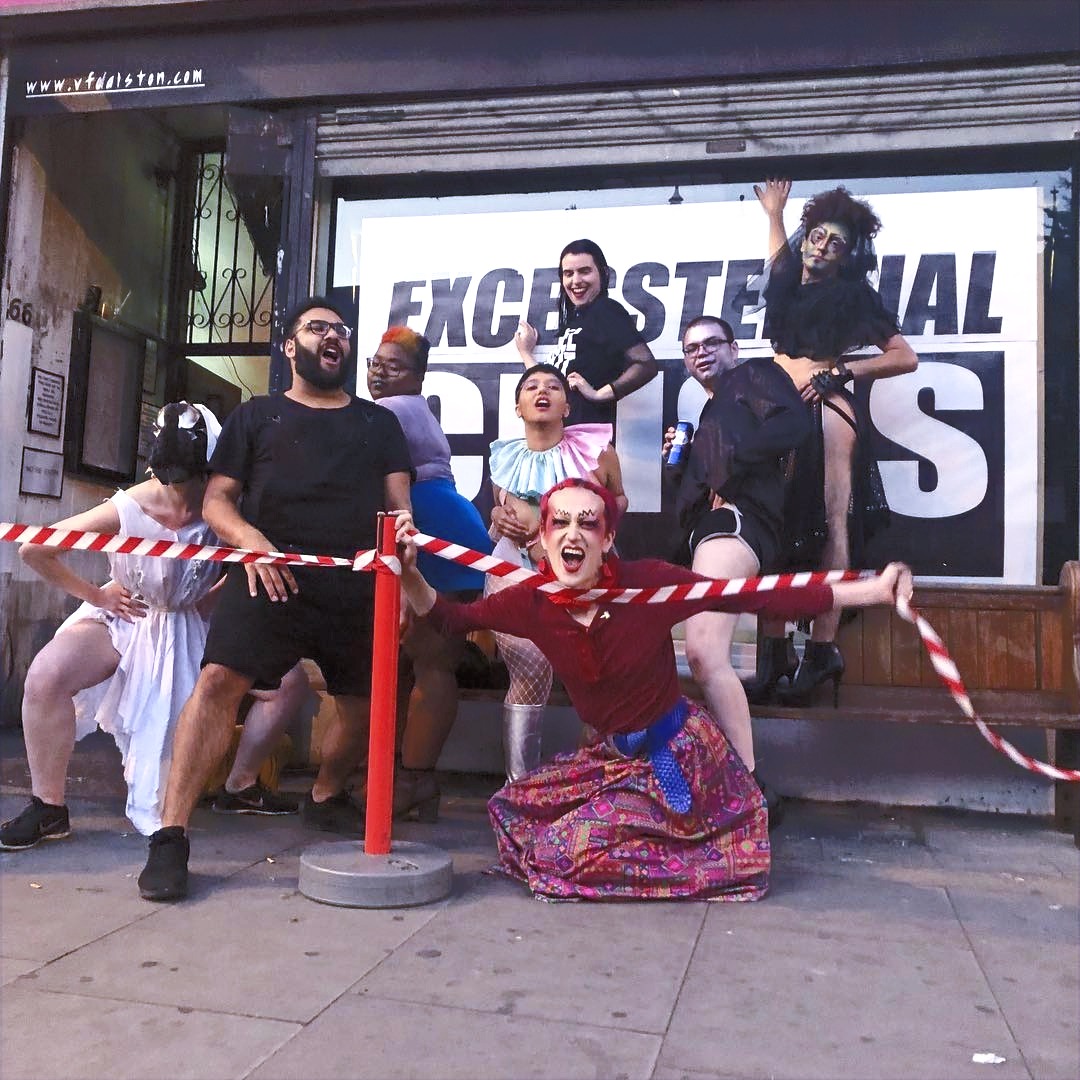
Club nights, live music and art exhibitions - VFD is a diverse queer collective based in East London, hosting a wide range of disco nights, film screenings and live poetry/ spoken word sessions. Openly prioritising transgender, lesbian and bisexual womxn and non-binary individuals, VFD is a safe space for those to be unapologetically queer.
Since the world became indoor-bound, VFD have been hosting virtual block parties and cabaret performances as well as leading discussions on global queer issues. September 2020 saw the creation of VFD’s ‘Black Trans Project’ - a local initiative to improve the wellbeing and quality of life of the black transgender community. The project provides a platform for inspiring and talented black transgender individuals to shine with pure ownership of their narrative, as well ass exposing institutional issues that disproportionately impact black transgender individuals.
See more via VFD.
Brazilian Wax
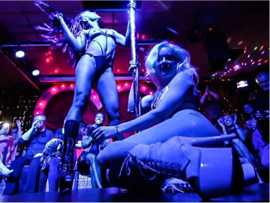 Run by Joana Nastari, Brazilian Wax is a queer Latinx club night which priorities the safety of the queer Latinx community, creating a space of love, joy and solidarity. Brazilian Wax is an openly proud safe space for Women, transgender individuals and queer folk! Celebrating the magic of queer talent through legendary pole and drag performances, live Samba and disco.
Run by Joana Nastari, Brazilian Wax is a queer Latinx club night which priorities the safety of the queer Latinx community, creating a space of love, joy and solidarity. Brazilian Wax is an openly proud safe space for Women, transgender individuals and queer folk! Celebrating the magic of queer talent through legendary pole and drag performances, live Samba and disco.
Before Covid-19, Brazilian Wax were creating a solidified lane in London’s queer nightlife, hosting club nights in Shoreditch, Soho and Bethnal Green! Strip-offs became a classic staple of a Brazilian Wax night - where volunteers would perform in front a loving, safe and supporting crowd. Overall, it’s clear that Brazilian Wax is supporting the queer Latinx community while turning all the way up, making strides in the empowerment of women, sex workers and all those in the queer community.
See more via Brazilian Wax.
Photo from Vaults Festival
Moonlight Experiences is led by a dedicated queer collective of diverse voices who are changing the perception of queer culture through curated activities and stories from the community. We are using the economic power of LGBTQ+ tourism to tackle the lack of black/POC representation in travel, and help amplify marginalised artists and sustain queer venues.
Find out more: www.moonlightexperiences.com
Instagram / Facebook: @moonlightexperiences
Email: info@moonlightexperiences.com